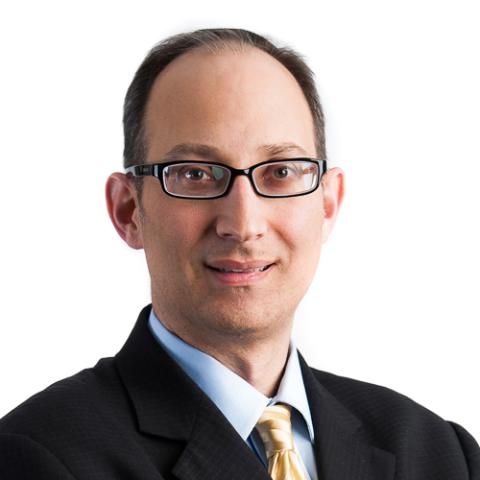The relative lack of interest in drinking among those of the Jewish persuasion is familiar enough that it is the subject of numerous jokes of various degrees of wit. It is well known, for example, that caterers think it is in their own commercial interests to tend an open bar for Jewish events and offer a cash bar at gentile ones. This is confirmed by insightful jokes like the story of the German, the Russian, and the Jew who are lost in the desert:
German: I'm so thirsty, I must have beer.
Russian: I'm so thirsty, I must have vodka.
Jew: I'm so thirsty, I must have diabetes.
Given the Jewish people's reputation as a relatively temperate people, one would think that a book on the subject of the relationship of American Jews and alcohol, even one cleverly called Jews and Booze, would have little ground to cover. Nevertheless, Georgia State University's Marni Davis has pursued this very subject, providing not only an opportunity to revisit some classic jokes, but also to imbibe a rich intellectual cocktail of interesting facts and oft-ignored history.
According to the Yiddish humorist Michael Wex's Just Say Nu, "It isn't that Jews don't drink, it's that they don't drink without a pretext." It is in part because of this pretext-driven drinking that the Jewish community in the United States was largely against the temperance movement and specifically against prohibitionist efforts. In addition to the desire to protect the Jewish use of wine for sacramental purposes, the reasons for this stance included the involvement of many Jews in the business of booze—as manufacturers, distributors, retailers, and bar-owners—and a generalized concern, still prevalent among Jews today, regarding the rise of what Davis calls "sectarian religious forces."
As it turns out, the Jews were right to be concerned. According to Davis, Prohibition helped foster anti-Semitism in two ways, at least. First, many bootleggers (such as the Bronf-man family of Canada, which made its fortune through smuggling) were Jewish, angering the Prohibition forces. Second, both prohibitionists and antiprohibitionists--also known as imbibers, tipplers, and general fun-lovers--resented the exception Jews received in order to be able to partake of sacramental activities. (Catholics, of course, received a similar exemption for communion.) These grumblers correctly surmised that some Jews would take advantage of the loophole for both fun and profit.
In fact, so many Jews were involved in the efforts to skirt Prohibition, both via the sacramental exception and through more straightforward smuggling efforts, that the Treasury Department even hired Jewish agents, such as the semi-famous Izzy Einstein, to address the problem. According to Davis, "Einstein and his partner, another Jewish Lower East Sider named Moe Smith, fashioned themselves as enforcers of a law brought into being by decades of activism on the part of Protestant lobbyists and anti-immigrant interests." The temperance movement, in Davis's description, was itself a barrier to Jewish integration into the mainstream of American society. With its departure, other barriers fell as well, and American Jews became what some have called the "model minority," due to their ability to become accepted and even thrive in a post-dry America.
Although Prohibition is gone, some of the developments that Davis writes about are still with us. She explains, for example, that kosher wine's reputation for being nauseatingly sweet comes from the turn-of-the-20th-century winemaker Sam Schapiro, who used dreadful-sounding "musky-smelling" grapes for his wines and had to mask the resulting flavor by adding copious amounts of sugar to the product. This brings to mind a classic Frasier routine in which Frasier needs to pretend to be Jewish in order to assuage the mother of his Jewish girlfriend. The exchange goes as follows:
Niles: What if she's expecting Jewish wine?
Frasier: Gosh, I'm afraid I don't have any of that on hand.
Niles: It's all right, it's easy enough. It's just like regular wine plus a little bit of this . . .[Niles takes some sugar and puts two teaspoons into the glass.]
Niles: Try that.
Frasier: It's dreadful!
Niles: Perfect.
Yet, even now, the story of Jews and drinking is changing. These days there is a wide variety of excellent kosher wines, and the best ones are reviewed annually in the weeks before Passover by the Wall Street Journal.
Nevertheless, the twin perceptions of Jews as nondrinkers who partake only of sickly sweet Malaga or Concord grape wines persist. The good news is that this allows the jokes to continue, such as the one about why Jewish mothers don't drink. (Because alcohol interferes with their suffering.) But what people joke about is often an insight into what they believe. As Christie Davies, author of Jokes and Their Relation to Society, has written: "There are very few jokes about Jewish drinking habits and an enormous number about those of the Scots."
For those greatly interested in this relatively narrow topic, Jews and Booze is thorough and well-researched. For everyone else, insights on the subject will likely continue to derive from a standard Jewish joke book or Catskills comedy routine.



















